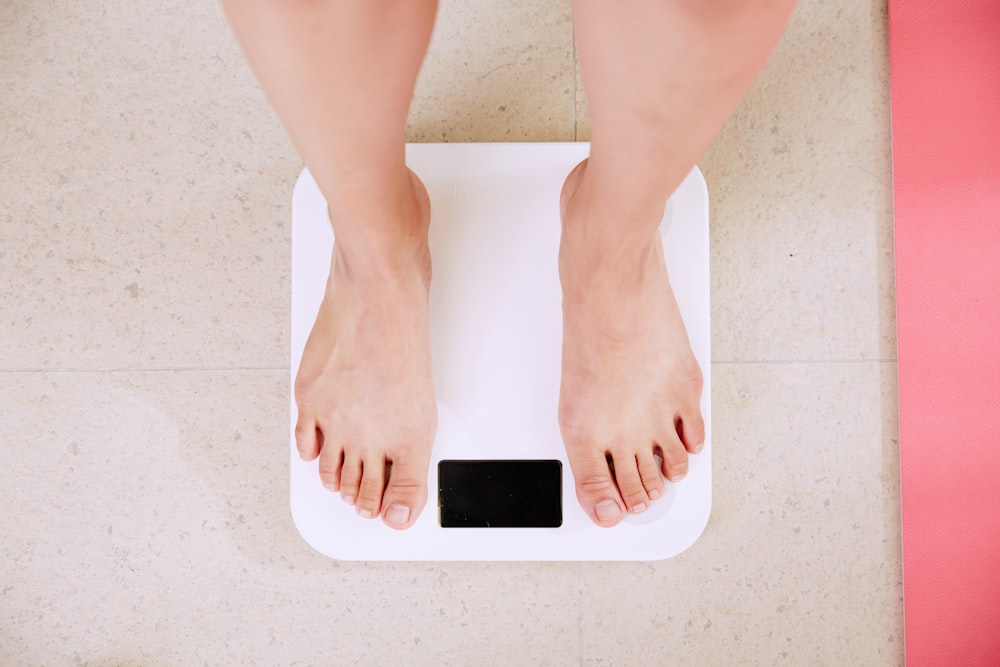This blog post is about menopause and weight gain. Menopause can be a difficult time for women, and one of the more challenging aspects is weight. This article discusses whether menopausal women always experience weight gain, why it happens, how to manage weight gain after menopause, and some tips on how to avoid or prevent menopausal weight altogether.
What is menopause?
There are menopause and perimenopause.
Menstrual periods stop during menopause, which typically occurs between ages 45 and 55 in women who have gone through menarche (first menstrual period) but may start earlier or later than that age range.
Perimenopause is the phase leading up to menopausal transition and menopause. It typically occurs within the years leading up to menopause and during the menopausal transition, though it can last as long as seven years in some women. During this stage, women’s average weight gain is around five pounds to 10 pounds.
Menopause occurs when a woman’s ovaries stop releasing eggs and making estrogen and progesterone (female sex hormones). Eventually, the levels of these hormones drop to such low levels that menstruation ends completely. belly fat belly fat north
Menopause symptoms may include:
- Hot flashes and night sweats
- Sleep problems (insomnia)
- Vaginal dryness, burning with urination or itching due to changes in the vagina’s tissue and blood flow during menopause
- Mood swings and irritability
- Difficulty concentrating or remembering things
- Physical changes such as bone loss, increasing the risk of osteoporosis
- Losing weight and gaining it again
- Increase in body fat
Weight gain is a menopausal symptom that may affect women. That being said, not all menopausal women experience weight changes during menopause or menopausal transition.
Menopause weight usually happens gradually over time during menopause and is not related to how many calories a woman eats. Instead, menopausal women may retain fluid (water retention) and muscle mass (sarcopenia), which can make them look and feel bloated while losing lean body mass. To deal with bloat, check out our latest guide to the best supplements for bloating.
According to the North American Menopause Society (NAMS), aging and lifestyle are related to weight gain. These changes coupled with hormonal changes and fat storage and distribution can lead to negative metabolic consequences linked to weight gain.
That’s why many women in both premenopausal and menopausal women are advised to have a healthy diet and have a regular exercise routine like strength training or aerobic exercise to prevent weight gain and keep excess weight off. Many middle age women can also experience weight gain after menopause because there is a decrease in resting energy expenditure (or how many calories you burn during rest).

How does it affect weight gain
It is not known precisely why menopausal women gain weight, but it likely has to do with changes in hormones that regulate appetite, metabolism, and overall body composition.
Estrogen can suppress the body’s production of thyroid-stimulating hormone (TSH), which stimulates metabolism. Low levels of estrogen may allow TSH levels to increase more than normal, causing increased metabolism and weight loss.
Estrogen can also affect the activity of an enzyme called aromatase, which helps menopausal women break down fat in their bodies (a process known as catabolism). When estrogen levels are low during menopause or menopausal transition, this may slow down the rate at which menopausal women burn calories for energy. In return, there is an increased risk for fat mass gain.
Additionally, menopause can cause changes in the levels of other hormones such as cortisol and follicle-stimulating hormone (FSH) that may also contribute to menopausal more weight. Also, postmenopausal women tend to have higher visceral fat (extra fat in the belly area) that leads to insulin resistance. If your blood sugar levels are higher, it means that you are able to store fat faster.
Weight loss during menopause or menopausal transition is common if a woman experiences extreme stressors like illness, emotional trauma, or chronic sleep deprivation.
Why do some women gain more than others?
Some menopausal women may gain more weight than others due to a combination of genetic and environmental factors. Age, genetics, ethnicity, race/ethnicity, menopause symptoms, diet quality during menopause, the amount of physical activity a woman gets each day or week during the menopausal transition can all influence menopausal weight.
A menopausal woman who is physically active during menopause eats a healthy diet and has few or no menopausal symptoms may be less likely to experience more weight than someone with the opposite characteristics. On the contrary, some research suggests that women who are older at menopause (ages 50-55) are more likely to gain weight than younger menopausal women (ages 40-45).
There is also evidence that menopause gaining weight may be greater among African American menopausal women. It has been suggested that this difference in menopausal more weight being put on could relate to biological factors, genetic components, socioeconomic status or the way some groups of people are treated by society.
The menopausal weight that a menopausal woman experience is also likely influenced by her age and the number of years she has been going through menopause or menopausal transition (known as menopausal duration). The longer it takes for a woman to go through menopause, the more likely it is that she will experience menopausal weight.
Even menopausal women who are extremely physically active or eat a very healthy diet during menopause may experience menopausal weight gain if they have been experiencing menopause symptoms for many years.
Ways to reduce weight during menopause
In order to reduce menopausal weight gain, menopausal women should eat a balanced diet and get regular physical activity.
Exercise can help menopausal women manage menopause symptoms such as hot flashes or night sweats by increasing the body’s temperature in a way that cools it down. It is also recommended for menopausal women with significant levels of menopausal weight gain.
In addition to exercise, menopausal women can also try other lifestyle changes such as managing stress or emotional issues that may be contributing to menopause symptoms, getting enough sleep each night (at least seven hours) and reducing the amount of salt in their diets by avoiding processed foods high in sodium.
Menopausal women should talk with their doctors about these treatment options if they have difficulty managing menopause symptoms during menopause.
Menopausal women who are gaining weight during menopause should also talk with their doctors about the best way to lose menopausal weight safely and effectively because rapid or extreme menopausal weight loss can be harmful to some menopausal women.

Tips for healthy living during and after menopause
It can be helpful for menopausal women to stay physically active and do regular weight-bearing exercises such as walking or jogging. It is also important that menopausal women eat a balanced diet while avoiding stress eating, or other unhealthy behaviours.
In addition to staying physically active during menopause, it is also important that menopausal women eat a balanced diet that includes whole grains, vegetables and fruits while avoiding menopause weight gain.
Menopausal women should also avoid unhealthy behaviours such as stress eating or other unhealthy activities. Menopausal women who experience menopause-related symptoms such as hot flashes can also benefit from menopause hormone therapy (also known as menopausal hormone therapy) if they are healthy enough for this treatment.
Menopause weight gain can be especially frustrating because menopausal women may find themselves gaining more weight at the time in their lives when they would like to start losing weight (or maintain current menopause weight). For this reason, it is important that menopausal women get regular menopause weight checkups from their doctors.
Menopausal women should talk with their doctor about how much menopausal weight gain is normal and healthy for them as well as which menopause symptoms they may need to treat in order to reduce menopausal weight or prevent unhealthy amounts of menopause-related weight during menopause.
It is also important menopausal women talk with their doctors about which menopause-related symptoms can be treated in a way that may reduce menopausal weight. For example, menopausal hormone therapy (also known as menopausal hormone replacement therapy) has been shown to decrease the rate of healthy bone loss and protect against cardiovascular disease while increasing menopausal weight.
Other ways of dealing with the changes in your body during menopause
There are menopausal women who may benefit from menopause hormone therapy (also known as a menopausal hormone replacement therapy) if they are healthy enough for this treatment.
Some menopausal symptoms such as vaginal dryness can be treated with over-the-counter lubricants while other menopausal weight gain or menopause symptoms cannot. It is important menopausal women talk with their doctors about which menopause symptoms can be treated in a way that may reduce menopause weight gain or prevent unhealthy amounts of menopause-related weight gain during menopause.

Lose weight
One of the best ways to drop weight is to start a weight loss regimen and stick to it. Another weight-loss technique is to eat less and exercise more this will defiantly reduce your body weight. A weight loss regimen should include eating on a regular schedule, eating the right foods, eating smaller portions, and limiting snacks. Exercise can be helpful in weight loss because it can help people control their weight by raising their metabolism if they eat healthy food while doing this. It also promotes weight loss by boosting energy levels which can make people more active. If you are using weights remember that your muscle mass will increase so do not be put off if you do not think you are losing any weight you are just increasing your muscle mass!

Body fat
One of the best weight loss techniques is weight-loss regimens. They need to include eating on a regular schedule, eating the right types of foods, eating smaller portions and limiting snacks. Exercise can be helpful in weight loss because it can raise people’s metabolism and increase their energy levels which will make them more active and push them to eat healthy food while they do exercise.
Exercise can also help weight loss by lowering the risk for diseases such as type 2 diabetes and cancer. The weight loss technique should also include weight training at least two or three times a week in order to keep muscles from shrinking which will give weight reduction every day.
If abdominal fat is what you are trying to lose then make sure you are doing cardio this will help burn off your abdominal fat fast. If you do some research into a new exercise program this will help you understand how to burn fat and prevent future fat gain.
The most important thing to remember is that you need to be at a healthy weight. This is easier said than done but that is the goal you need to have.

Final thoughts
Weight loss is an important part of weight management. It’s best to have a weight-loss regimen that includes eating on a regular schedule, eating the right types of foods, and exercising regularly. If you are struggling with weight during menopause or other menopausal symptoms, talk with your doctor about what treatment options may be available to help manage these uncomfortable side effects. Menopause weight can also be managed by adopting healthy lifestyle changes like weight training at least one or two times per week in order to prevent muscle mass from shrinking which will increase weight loss every day!










